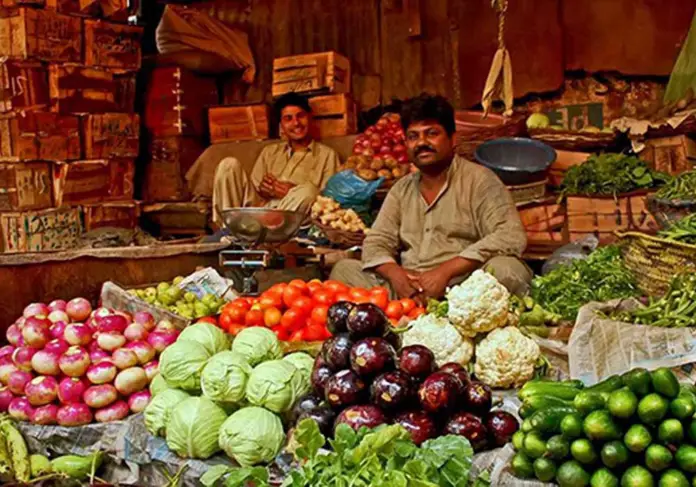Short-term inflation measured by the Sensitive Price Index (SPI) declined marginally during the week ended May 25, but remained at 45.49 per cent.
According to the Pakistan Bureau of Statistics (PBS), weekly inflation has remained above 45 percent for the last two weeks. The prices of petroleum products have decreased, on a weekly basis, by 0.42 percent.
Short-term inflation reached the country’s highest level of 48.35 percent during the week ending May 4, after which it has decreased marginally.
The SPI had increased steadily since Ramadan, due to weak rupees, expensive petrol and electricity, as well as higher rates of sales tax.
The basket of sensitive price index includes 51 items, out of which prices of 18 items increased compared to last week, 16 declined and prices of 17 remained stable.
The prices of these products increased more during the same week last year, cigarettes (138.50 per cent), Lipton tea (114.93 per cent), wheat flour (110.17 per cent), gas charges for the first quarter (108.38 per cent), male slippers (100.33 per cent), banana (99.58 per cent), potato (98.58 per cent), and potato (98.10 per cent). 78.68 per cent), eggs (69.55 per cent), dal moong (63.18 per cent), double roti (63.17 per cent) and dal mosh (55.93 per cent).
On a weekly basis, prices of energy saver bulbs (4.91 per cent), clothes (2.75 per cent), basmati rice (1.86 per cent), ready meat (1.32 per cent), goat meat (1.22 per cent), fresh milk (1.20 per cent), shirting (1.14 per cent) and beef (1.03 per cent) were among the items that saw a rise in prices on a weekly basis.
On a weekly basis, prices of poultry (8.91 per cent), wheat flour (3.33 per cent), eggs (3.03 per cent), garlic (2.83 per cent), tomatoes (2.61 per cent), onions (2.22 per cent), bananas (2.04 per cent), dal moong (1.51 per cent), dal masoor (1.26 per cent) and dal masoor (1.26 per cent).
According to a report by the Ministry of Finance, the low-income section of the society is previously troubled by high inflation, which has become uncontrollable due to political instability, financial mismanagement and delay in the agreement with the International Monetary Fund.
On the other hand, the State Bank of Pakistan has a strict monetary policy, but expectations regarding inflation are not decreasing, the report added.
The government has taken tough measures to control the fiscal deficit under the IMF program, including increasing fuel and electricity prices, eliminating subsidies, market-based exchange rates and higher taxes, which can slow economic growth and increase inflation in the coming months.







